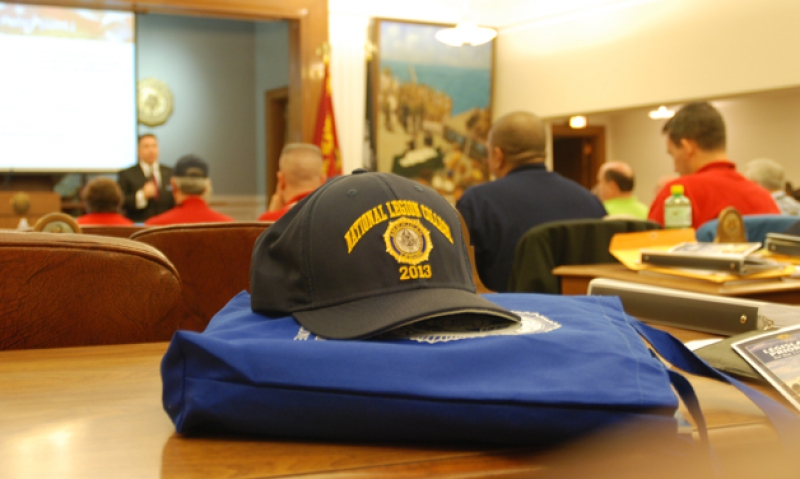
Students learn about the Legion’s history
The history of The American Legion was a focal point for Day 2 of Legion College as the 56 students watched a historical video about the Legion and the creation of the GI Bill.
"The video showed that for membership, we need to go back to basics by showing veterans what we can do for them," said Peter Trzop of Post 121 in Bardstown, Ky. "Let’s serve veterans because we want to, but let’s also show them what we, the Legion, can do. We have to give reasons for membership; we have to plant those seeds upfront."
"This is a different war era," said Anthony Noe of Post 81 in Leitchfield, Ky. "It’s not like World War II where you came home and joined the Legion. Now, if you don’t offer the younger veteran something or give them something different than another veterans organization, they are not going to join."
A passion for the Legion’s history is what helped John Kopp, a Vietnam Navy veteran and a paid up for life member of Post 61 in Liberty, Mo., achieve a spot at Legion College. For the past three years, Kopp submitted an application to Legion College stating that he still had "20, 30 years of life left in me to instill enthusiasm back into Legionnaires who have lost it by educating them on the history of the Legion. I guess third try was a charm," he said.
Kopp joined the Legion eight years ago with his son John Paul, a Persian Gulf Navy veteran, and his father, a World War II Marine veteran.
"What really got me enthused in the Legion is the history book ("The American Legion: An Official History") by (Thomas A.) Rumor," Kopp said. "Knowing the history of The American Legion is so important if you want to ‘sell’ the Legion to a non-member."
Besides learning about the history of the Legion, the students broke into five groups and completed their first assignment, which was giving a five-minute presentation about their assigned districts, such as background information, demographics and history. Legion College Chancellor and Past National Commander Butch Miller from Virginia said his overall critique was that each group did "a heck of a good job," but was "somewhat disappointed that out of five presentations, only one mentioned a website and two mentioned American Legion Riders — one of the most dynamic programs in The American Legion. If you don’t have a Legion Riders chapter, start one."
Tomorrow, Legion College students will listen to presentations from divisions within the Legion and will break into small groups to conduct their second assignment, which is to develop a preliminary strategic plan for their district.
